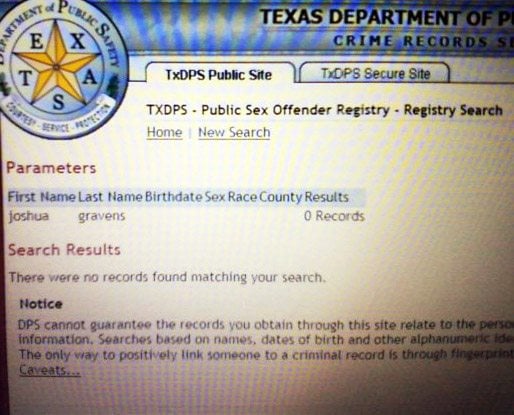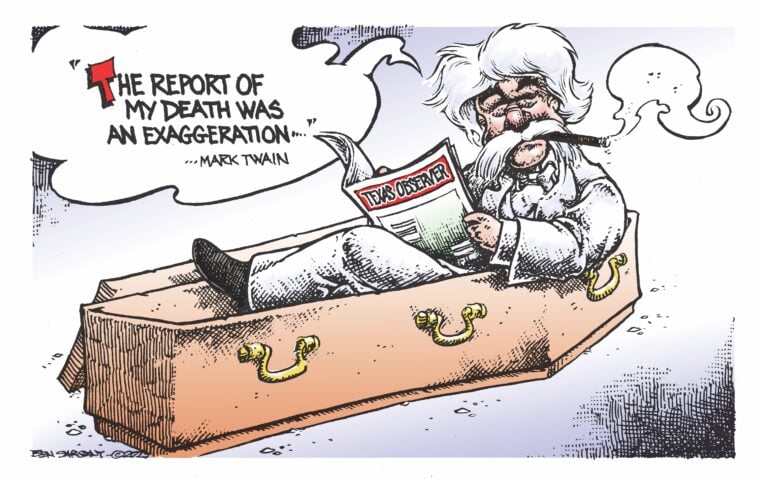
Josh Gravens, Subject of Observer Feature, Removed from Sex Offender Registry
Above: Screen grab of Joshua Gravens' Texas Department of Public Safety record.
The Texas Observer’s June cover story, “Life On the List,” looked at what happens when children are placed on Texas’ public sex offender registry. It centered on Josh Gravens, who at age 12 had sexual contact with his sister, was handed over to the Texas Youth Commission for more than three years, and has been listed in the public registry ever since.
Before agreeing to be interviewed for by the Observer, Gravens had never discussed his ordeal with anyone who didn’t strictly need to know. Gravens had never been an activist. He had struggled privately, moved from place to place, job to job. Each time he started to build a life, he’d be fired, threatened, or evicted after a couple of years when something called attention to his presence on the registry.
As of November 15, though, the 25-year-old married father of four is, for the first time since he was 13, not on the list.
Years ago, a clerk told Gravens that he couldn’t petition for removal because the judge who sentenced him had died. It turns out that wasn’t true. The Observer found the judge during reporting and let Gravens know how to contact him. After “Life On the List” came out, Gravens sent the judge a copy of the story, along with a request for a copy of his court records (he had been told they were sealed) so that he could petition for the removal of one erroneously listed charge.
Shocked and moved by the effect the registry had had on Josh’s life, the judge instead considered Gravens’ letter a petition to be listed privately and arranged a court date for him.
As Gravens wrote in a letter to me:
“On November 1, I appeared before the original judge in my juvenile case. I sat in the witness stand and made a case for how the public registry has time and again brought an end to my successes. It was a very informal setting. The judge did not wear his robes, the district attorney was present, and they both asked me questions about my advocacy, employment, and most of all family… As the hearing proceeded, both the judge and the DA had their [copy of state] statutes out to make sure of exactly how the law worked. The removal of juveniles from the public registry had been a law on the books for ten years, but the judge in this case (who’s served 20+ years) and the district attorney, neither had ever used this law. This speaks volumes to how rare it is that someone is removed from the registry. Officials are very good at placing people on the sex offender registry, but when it comes to removal, they have no idea how.”
Gravens’ records will still be available to law enforcement officers, but not to the public.
Gravens has also applied for a George Soros Justice Fellowship to educate policymakers about the effects of listing children on the public sex offender registry. This very afternoon, he learned he is a finalist for the fellowship. He’ll be flown to New York for an interview next month. “I’m so excited,” he said. “I’ve never been there.”
He added, “This is a direct result of the article.”
Along with the joyful news, Gravens sent the screen shot you see above.
Now, he begins life off the list.


